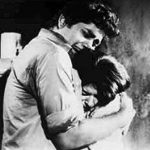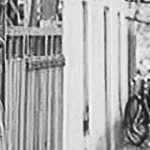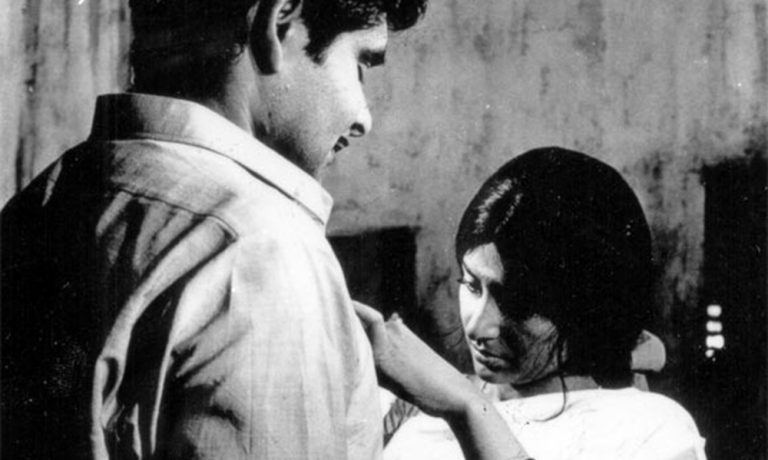Festivals: New York, Washington, Moscow, London, Paris, Nantes, La Rochelle, Pesaro, Helsinki, Ljubljana, Munich, Fribourg and Colombo among others.
Awards: Certificate of Merit – International Film Review, Colombo.
National awards for Best film, Best Director, Best Cinematography, Best Actress.
Kerala State awards for Best film made in Kerala, Best Cinematography, Best Art Direction.
Synopsis
 A long distance bus is entering the city. Among the passengers are a young couple – Sita and Viswam. If they look a little conspicuous, they are being together for the first time. Sita’s fascination with the new sights and sounds that greet her seems to be boundless. Viswam’s delight is tinged with the uncertainty of the life that awaits them.
A long distance bus is entering the city. Among the passengers are a young couple – Sita and Viswam. If they look a little conspicuous, they are being together for the first time. Sita’s fascination with the new sights and sounds that greet her seems to be boundless. Viswam’s delight is tinged with the uncertainty of the life that awaits them.
In the hotel room, Sita stands near the window. Viswam walks up to her and asks, ‘Do you regret out decision?’ She shakes her head. The lovers embrace.
A few days, bright with love’s endearments pass by. Slowly, Viswam begins to grow thoughtful, ‘How long are to continue like this?’
They move to a cheaper hotel. A small room with stained walls, rickety windows and filthy mattresses. There are brawls around and also intruding drunkards with lecherous grins. They move again, this time to a small dingy house. Their assorted neighbours, Janaki Amma the petty rice seller who is friendly and helpful; Vasu the lewd smuggler; coquettish Kalyani the prostitute who is friendly with Vasu.
 Viswam goes to the editor of a popular weekly to offer him his novel for serialization. There he listens to writers debating about form and content and other undoubted weighty matters. It makes him feel small and insignificant. The editor promises to go through the novel. Back at home, Sita asks him about the novel. Viswam cannot help being evasive.
Viswam goes to the editor of a popular weekly to offer him his novel for serialization. There he listens to writers debating about form and content and other undoubted weighty matters. It makes him feel small and insignificant. The editor promises to go through the novel. Back at home, Sita asks him about the novel. Viswam cannot help being evasive.
The editor turns down the novel as ‘too sentimental’. But he does not fail to offer Viswam a word of patronizing encouragement.
Viswam gets a job as a lecturer in a tutorial college. The principal is a gay, amiable man. On an outing with him, Viswam gets drunk. Only on returning home does he remember that there is no provision Left in the house. Sita cries. He is repentant.
 The tutorial college runs into financial difficulties and face closure. Viswam loses his job. Once again an anxious search for alternatives. And mounting disillusionment. Reality, Viswam begins to see, does not conform to your dreams.
The tutorial college runs into financial difficulties and face closure. Viswam loses his job. Once again an anxious search for alternatives. And mounting disillusionment. Reality, Viswam begins to see, does not conform to your dreams.
The new born arrives. Janaki Amma is by the side of Sita. Viswam spends night after nights nursing Kanakkapillai, a senior fellow worker who takes ill. The decease seizes Viswam too. Sita lies on the floor. The bed beside her is empty. Janaki Amma advises her to return to her parents. She refuses. As a woman, Sita had chosen a man to live with, a life to lead; indeed it has been a ‘swayamvaram’. Where had Sita and Viswam gone wrong?
Director’s statement
Swayamvaram is a trip from illusion to reality.
A young man and a woman decide to live together and set out for a city with dreams of living together happily ever after. They have romantic ideas of a life cut away from the net work of their families. He is hopeful of finding a job, getting his first novel published; but the reality of the situation turns to be far from cordial. The spectrum of unemployment stares in their face. The very existence of their day to day life is in question. They have no choice but to make compromises one after another. They leave the hotel they first landed to accommodate themselves in a dingy lodge room and eventually end up in a small old house on the outskirt of the town where the less privileged have their huts and tenements.
However underprivileged he is, the hero cannot see himself as one among the jobless who take out rallies in the street raising slogans against the Government in power.
The clerical job in a saw mill that he lands in a desperate bid for survival is not without its problems. To start with, he has been put in place of someone who was dismissed from service. The man who lost the job starts haunting him but while the hero has all the sympathy for him he can’t help it. This is in spite of a haunting feeling of guilt. It is a typical case of the moral crisis of the middle class.
Filmmakers and Critics Say
‘Adoor’s films are culture –specific, deeply embedded in the culture of the land of Kathakali and temple festivals, but is permeated with a human concern that makes them universal. His stance is contemplative, introspective and he leaves much to the imagination of the audience to make viewing his films a satisfying experience. His subtle sense of humour, stunningly beautiful visuals, and masterly control over rhythm make his films accomplish-ments rare to find in Indian cinema. The multi-layering of the image, the aspiration to poetry, and the effort to reach out to the infinite through the finite, the subtle through the gross, has given his works a distinctive style which he has refined over two decades of his career.
Adoor, coming as he does from a small-town middle class milieu in Kerala – made his first film, Swayamvaram (One’s own choice) on the moral crisis of the middle class. It is about an unmarried young couple, intensely in love, escaping to a small town to live together, defying the conventional norms and coming to grips with the harsh realities of life and living, which turns their dream into a nightmare. The struggle between the ideal and the real, love and the fear of losing the object of love, the crisis of conscience caused by the pressure of mundane needs, bring to the fore the human predicament, the spiritual degeneration of man – a theme which recurs in his later films too. Swayamvaram means choice, but the choice in this case is between the devil and the deep sea- a devastating commentary on the socio-economic situation of the middle class. ‘
(Nirad Mahapatra, Cinema in India)
Credits:
- Direction: Adoor Gopalakrishnan
- Produced by: Chitralekha Film Co-operative
- Story & Script : Adoor Gopalakrishnan (Assisted by K.P.Kumaran)
- Cimatography: Ravi Varma
- Audiography : P.Devadas (Direct Sound)
- Editing: A.Ramesan
- Music: M.B.Srinivasan
- Art: B.K.Sivasakthan Nair & B.D.Dathan
- Editing: M. Mani
- Production Controller: Kulathoor Bhaskaran Nair
- Format : 35 mm B&W
- Duration: 125 Minutes
- Processing: AVM Lab
- Year of Production:1972
Caste & Characters:
- Madhu (Viswanathan)
- Sarada (Sita)
- Thikkurissi (Principal, Tutorial)
- Adoor Bhavani (Neighbour)
- Lalita (Kalyani)
- P.C. Soman (Kalyani’s husband)
- B.K.Nair (Accountant)
- Gopi (The dismissed employee)
- P.K.Venukkuttan Nair (Smuggler Vasu)
- Somasekaharan Nair (Landlord)
More Stills: |
|||||
 |
 |
 |
 |
 |
 |
Working Stills: |
||
 |
 |
 |

